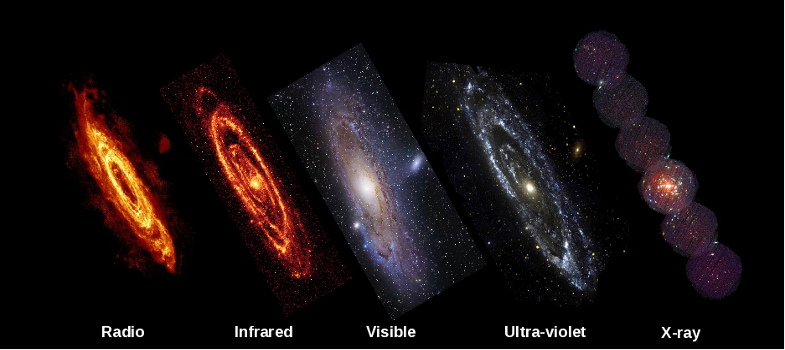Section 4.2: How will the Universe end?
universe
Our Universe is currently expanding, but what will happen next? Will it continue to expand forever, getting gradually colder? Or will gravity slow the expansion to start to pull it back together? Is the expansion of the Universe getting faster or slower?
The answer to these questions depends on the density of matter and energy in the Universe. If there is more matter and energy, the effect of gravity will be stronger, slowing the expansion.
Astronomers study the sky to determine the amount of energy and matter and also to measure the speed of expansion of the Universe. They can use these estimates to predict what will happen to the Universe in the future. As instruments, techniques and our understanding of laws governing our Universe improve, we can make more accurate predictions.

Possibilities for the future of our Universe. (credit: BenRG via Wikimedia Commons)
Big Freeze
If the density of the Universe is lower, then the expansion will accelerate so the galaxies move apart faster and faster. If this happens, the Universe will become very cold as the energy spreads out. Eventually matter would be spread out so far that new stars would not be able to form.
Big Rip
If there is much more dark energy in the Universe than is thought, it would cause the expansion to accelerate at such a rate that it would start to rip apart galaxies, stars, and eventually molecules and atoms.
Big Crunch
If the density of the Universe is greater than the critical density (the straight line on the graph above), then the expansion of the Universe will decelerate and eventually begin to contract. Eventually all the matter and space-time would contract to a single, very dense point. This could then cause a Big Bang for a new Universe, beginning the cycle again.


